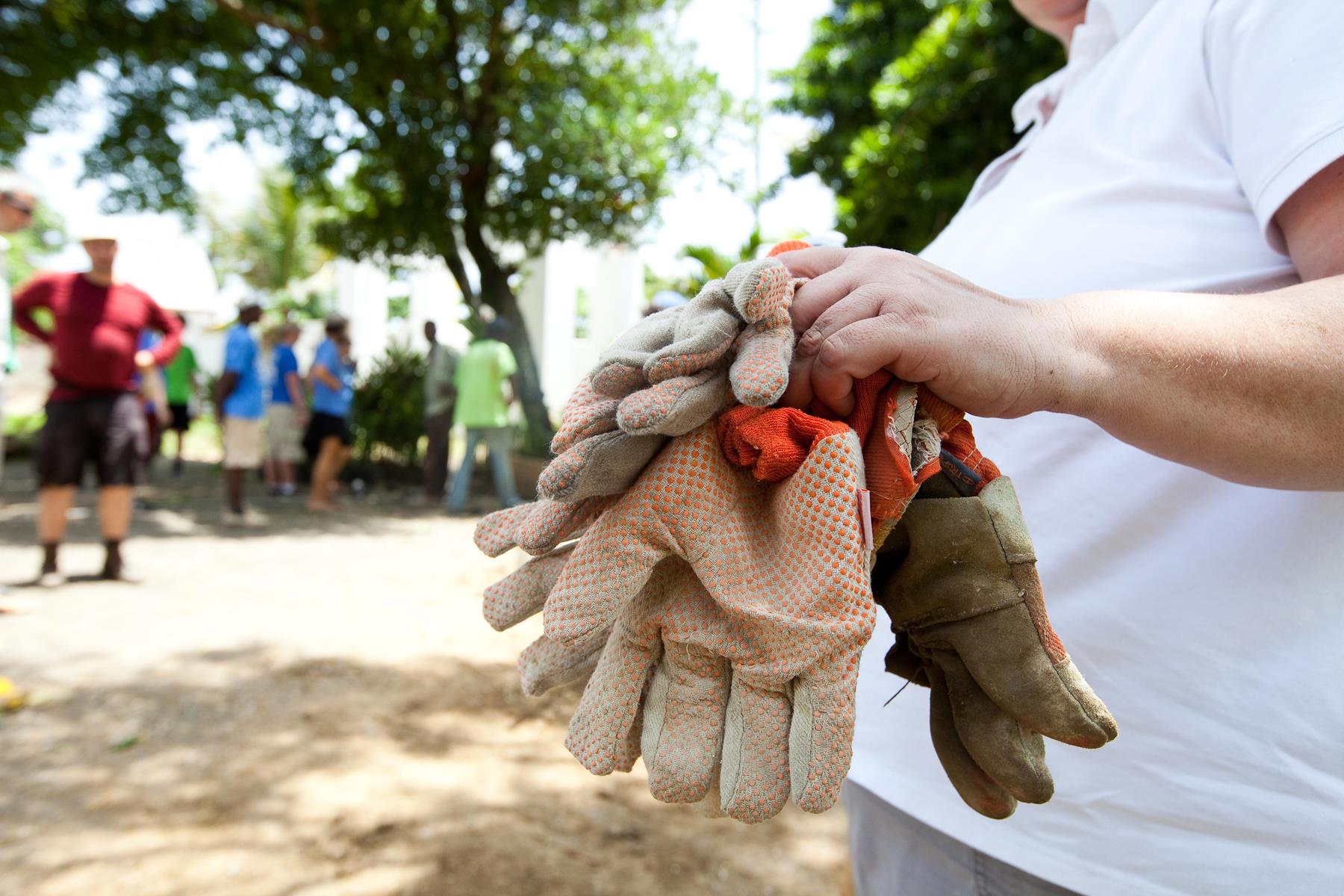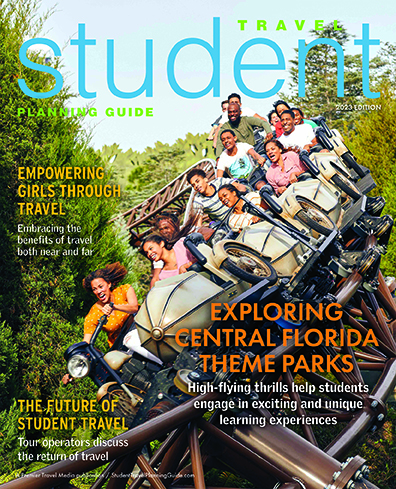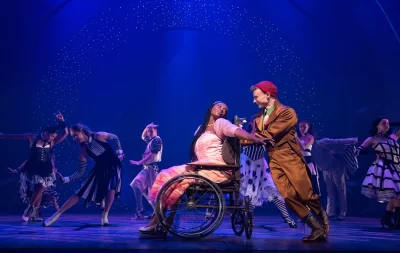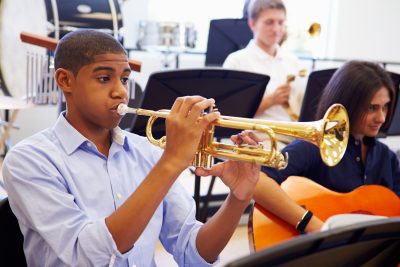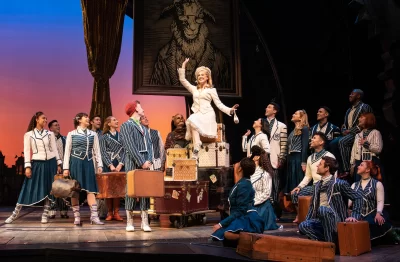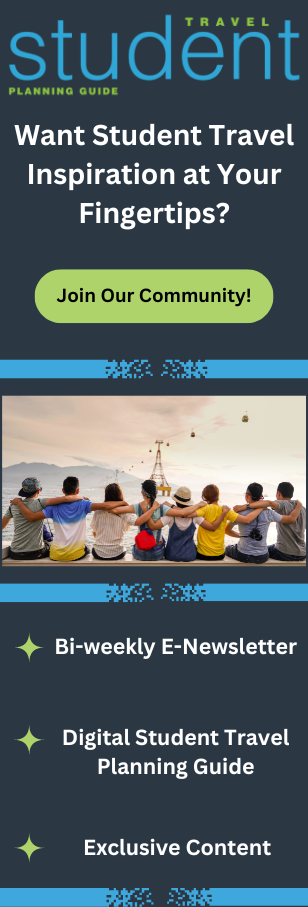Travel is one of the greatest teachers. Visiting new destinations exposes people to different cultures and communities. It’s an experience outside of the everyday. While travel is inherently experiential, EF Educational Tours takes the concept to another level through its Service Learning tours. This program offers a real way for students to engage with a community and help it grow through collaborative, concerted efforts.
EF Educational Tours hosts service learning tours in Africa, Asia and the Americas, each with a variety of themes and projects. All undertakings follow the EF pillars of service learning: meaningful service, cultural immersion and leadership development. Educators looking for a hands-on, eye-opening lesson for their students have a range of options to choose from that will fit their curriculums.
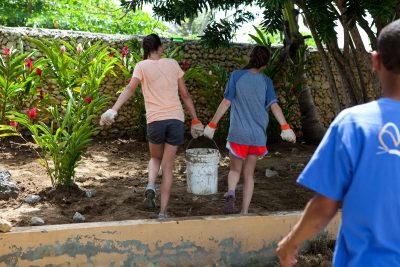
Who is EF Educational Tours?
EF stands for Education First, and learning is the key driver behind all its tours. EF’s mission is to inspire students through global travel and opening the world to them through education. EF lives by a simple philosophy: the best way to help students gain new perspectives and build skills for the future is through experiential learning. This is why every tour is designed with immersive experiences that allow them to connect and relate to a destination, helping them expand their knowledge of the world and determining their place in it.
What is EF Service Learning?
The EF Service Learning program follows the same ideals as the organization’s other educational tours with a deeper involvement with the people and community students encounter. The goal of these tours is to help both students and communities grow through a collaborative relationship with local organizations and youth groups, according to Alex Luther, Director of Service Learning for EF Tours. EF differentiates itself from private mission trips or voluntourism expeditions by dedicating its service learning tours to two customers: educators/students and its NGO partners and the communities they serve. They listen to these two entities to create an itinerary that will serve the needs of the students and the needs of the community, says Luther.
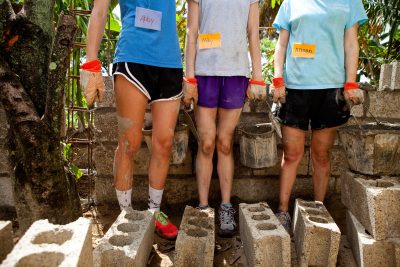
How EF Service Learning Works
With EF Service Learning, it’s all about collaboration. When building tours, the first thing EF does is partner with local organizations that are addressing authentic needs through projects driven by the community. EF then works with the local organizations to identify projects where EF travelers can effectively collaborate. Travelers may not complete the project or see the results, but they will know they contributed to a meaningful cause that is truly important to a town and the people that live there. EF’s goal is to not only educate students through hands-on tasks, but also build trust with their local partners by listening to what they need and respecting their concerns rather than pushing its own agenda.
The second element of these service learning tours is cultural immersion. EF Travelers will meet and work side-by-side with community members, get a glimpse into daily life, learn local customs and discover how their service will have an impact. But there’s also a reciprocal side to this, as students have the chance to share their culture and communicate their thoughts and understandings to the people they encounter.
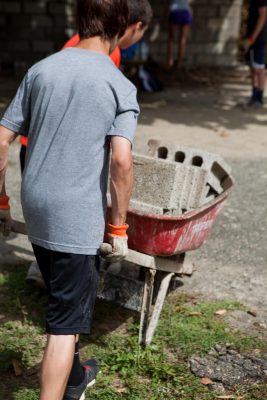
Abby Hollis, currently a student at Savannah College of Art and Design, also had a transformative experience through EF Service Learning. Participating in the Peru program, Abby watched mountain villagers craft beautiful textiles with wool from local alpacas and dyes from cochineal insects. Seeing the process first-hand had a life-changing effect on her. “My interest quickly changed from finished product to process, from trends to thoughtful design, from fast-fashion to sustainable and ethical production,” she writes. Abby was eventually inspired to join a 10-week internship at Awamaki, the non-profit organization that EF Tours collaborated with to highlight local cultures to visiting students.
The final piece of EF Service Learning programs is leadership development. Students do not just follow instructions from teachers or program leaders. They are asked to plan, act and work together to accomplish their goals, developing into responsible citizens who can take charge in different climates and cultures that they aren’t familiar with. In addition, EF hopes students will actively reflect on their experiences and collaborate on ways to continue their service even after they return home.
How EF Works with Educators and Students
Organizing a service learning trip for students is not easy, but teachers working with EF Tours will find the process much simpler, according to Luther. The company converses with educators to find out exactly what they’re looking for, what kind of curriculum they have and what they hope to achieve. Then ittries to match a teacher or group with the right project, says Luther. For example, an art teacher may be interested in a tour that’s more art-centric, so the service learning experience in the Dominican Republic that features murals by local artists could be the perfect fit.
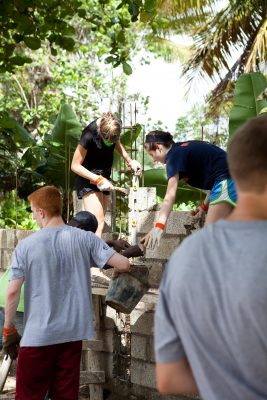
During the tours, EF offers ongoing reflection for the students, pushing them to see things differently and how people live and what’s important to other cultures. These reflections allow them to identify how these communities can educate them about the world and themselves. When the tour is over, the lesson doesn’t stop. EF provides educators with research and resources that can be used back in the classroom to continue the students’ educational journey. This allows students to build on an idea, as the students did with the clean water project, or revisit the cultures they discovered months after they’ve returned home.
A Deep Impact
An important piece to remember about EF Service Learning is that it “is not voluntourism or poverty tourism,” says Luther.“And we don’t want it to turn into that.” These are real people with a voice and an opinion about what their community needs. They should not be photographed for the sake of social media or given gifts to better their circumstances. These actions can do more harm than good. Collaboration is key, and students on EF Tours will quickly learn that the biggest gift they can give is their helping hands and their open ears.
EF Service Learning tours leave an impression on the souls of the students and the fabric of the communities they serve. They are not changing the world with one trip, but they are making a difference and learning what it’s like to be part of something larger than themselves. These projects lead to a greater good and create a ripple effect that will have a deep impact on the world.If you or your students are interested in participating in one of these life-changing programs, feel free to reach out to a member of our team.

